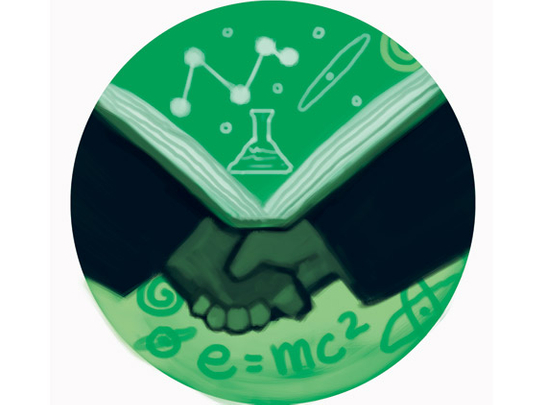
The stream of signals coming from Washington to Damascus has been steady for weeks. This month, three US Congressmen visited Syria, the last of whom, Brian Baird, carried the slogan of ‘science diplomacy'. Baird, who was featured in the mainstream Arab media for being the first US Congressman to visit Gaza in February 2009, is currently leading the Science Diplomacy initiative in Congress, arguing that science transcends political differences and should be used to improve Syrian-US relations.
The Congressman from Washington state is currently leading an effort to lift the sanctions on Syria, imposed by the Bush administration in 2004, probably taking his cue from President Barack Obama. Last July, Obama signalled his readiness, via his Middle East envoy George Mitchell, to ease sanctions on Syria vis-a-vis spare parts for aircraft, information technology products and telecommunications.
Weeks after Baird left Syria, an influential business and technology delegation came to Damascus, representing top firms like Microsoft, Dell, Cisco, Symantec and VeriSign. They met President Bashar Al Assad in a visit that clearly had Obama's fingerprints all over it, signalling an eagerness to do business with Syria and turning a blind eye to US sanctions that prohibit these companies from doing business with Damascus.
Coinciding with this development was the re-opening of the American High School in Syria, which was closed in 2008 after the US invaded Syrian territory and killed seven civilians, claiming to be hunting for a senior member of Al Qaida.
Science diplomacy, apparently, is kicking off. Last May, the US dropped its veto against Syria joining the World Trade Organisation (WTO) for which it had applied since 2001.
Not surprisingly, Secretary of State Hillary Clinton recently used the same phrase saying: "‘Science Diplomacy' and science and technology cooperation between the United States and other countries is one of our most effective ways of influencing and assisting other nations and creating real bridges."
Syrians, nevertheless, believe that much more needs to be done by the US vis-a-vis science diplomacy. This starts with allowing Syrians to order the latest textbooks for private universities, letting them upgrade their air fleet and not preventing them from downloading Google products among other things.
In the end, science diplomacy is a creative way to say: "Hard power has failed; soft power through science and diplomacy shall overcome." It also says, in many different ways, that sanctions have failed to yield any political results, only damaged confidence in Syrian-US relations and tarnished America's image among Syrians. The Syrians realise, however, that once embedded into US law, sanctions become very difficult to remove without a proper pretext. True they were renewed last May, but probably this did not come as a surprise to the Syrians, although it certainly was a disappointment. Syria, after all, remains closely allied to Iran, Hezbollah and Hamas and realises that sanctions will not be lifted even if Obama wanted so long as all these ties remain intact.
It has said, time and again, that it will not sever its relationship with any of these major players, just because the US views them negatively. It is probable, however, that unlike George W. Bush, Obama personally is not interested in severing Syria's relations with any of these groups. On the contrary, he is the one pushing for a softening of sanctions and for more business and scientific engagement with Damascus.
Politically, the US president wants to invest in Syria's relations with these groups, seeing that Damascus has no history of anti-Americanism and hoping that it can help moderate the behaviour of these groups. It did it when it helped release 15 British sailors from Iran, then again this summer when a French national arrested in Tehran was released under Syrian mediation. It did it when it secured the release of BBC journalist Alan Johnston from Gaza and again when it got Hamas to stop obstructing the Arab Peace Initiative of 2002. There is no reason why Syria would not continue to play this stabilising role, as long as a two-day dialogue is under way with Washington, aimed at restoring normalcy to the Middle East.
Good intentions
Speaking to La Republica last June, Al Assad made the distinction between Obama and the administration saying: "I would like to draw a distinction between President Obama, who has authority, and the United States as a State. The President has good intentions. The climate between us has definitely improved. Sanctions were partially softened, though they were reconfirmed. Yet, there are institutions such as Congress, lobbies that weigh in our relationship sometimes in a positive way, other times in a negative way. And, in the end, it is results that matter."
Results in politics often take longer than expected but results in business, science and technology are easier, less costly and do not need the approval of a troublesome US Congress. Perhaps this is the stepping stone that Syria and the US need to push bilateral relations forward with the full and public backing of both Obama and Al Assad.
Sami Moubayed is editor-in-chief of Forward Magazine in Syria.









